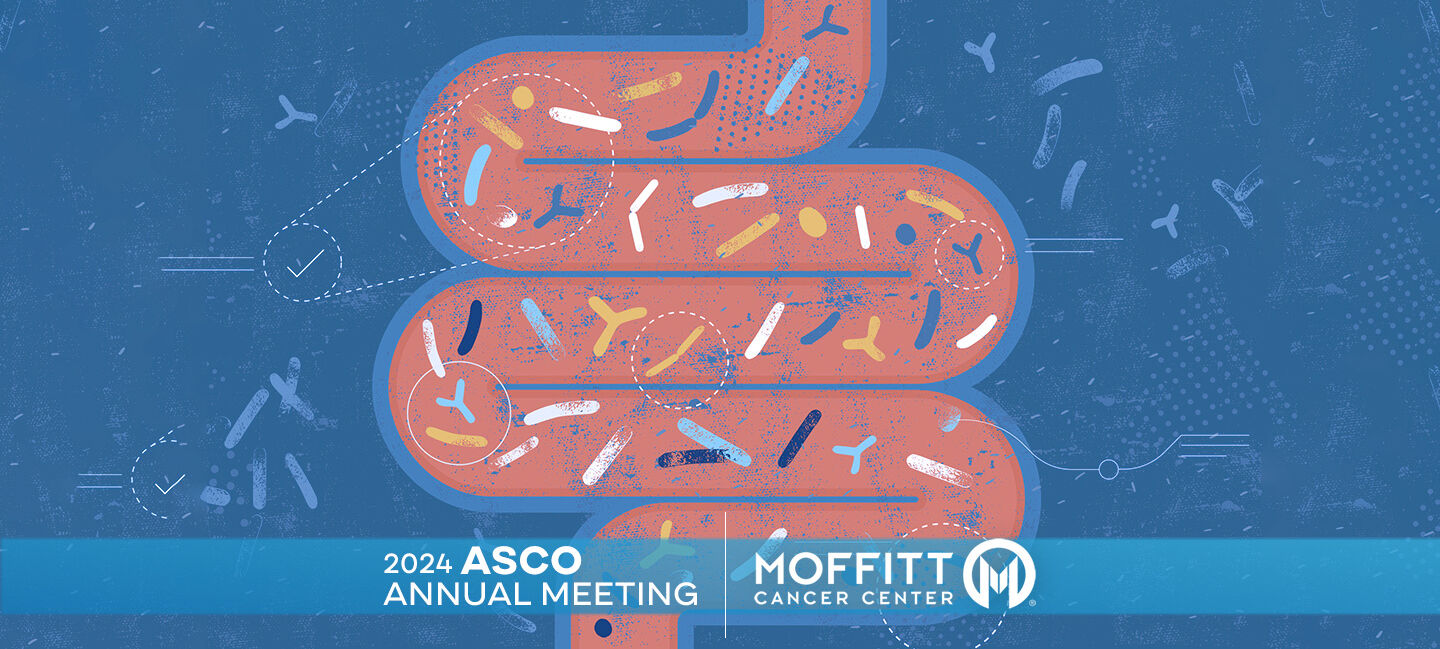Evaluating the Microbiome in Patients with Triple Negative Breast Cancer
Triple negative breast cancer, which accounts for 10% to 20% of breast cancer patients, is the most aggressive and challenging to treat. Three of the hormone receptors usually present in breast tissue — estrogen, progesterone and HER 2 — are absent, which renders traditional targeted therapies ineffective.
In a pilot study, researchers from Moffitt Cancer Center and Duke Cancer Institute evaluated the role of the gut microbiome in treatment response for patients with early-stage triple negative breast cancer.
Humaira Sarfraz, MD, chief hematology and oncology fellow at Moffitt, presented the results at the 2024 American Society of Clinical Oncology (ASCO) annual meeting.
“Within our intestines we have millions of bacteria,” Sarfraz said. “These vary based on factors such as where we live, our body weight, our diet — and for cancer patients, even the different treatments they are receiving.”
Sarfraz explains that these bacteria live in proximity to our lymphoid tissue, which is a prime component of our immune system and immune response. “So, they end up modulating responses to therapy, including chemotherapy and very excitingly, immunotherapy,” she said.
The study evaluated 32 patients with early stage, localized triple negative breast cancer being treated with chemotherapy and immunotherapy.
Sarfraz says after chemo and immunotherapy, two-thirds of patients will have no residual cancer at the time of surgery, whereas one-third will have residual cancer remaining in the surgically-removed tissue. It’s been shown that patients who have residual cancer in the breast at the time of surgery have a higher risk of recurrence and a more aggressive subtype of triple negative breast cancer.
“What we wanted to do was, in this high-risk, very aggressive breast cancer, particularly in patients with residual disease and a higher risk of recurrence, or those exposed to potentially higher degrees of toxicities, was to identify what these biomarkers were and then further downstream modulate them,” Sarfraz said.
To identify these biomarkers, researchers collected blood and stool samples from patients before and after treatment. Thirty-one patients were assessed for treatment response, with 12 showing no evidence of cancer and 19 having residual cancer. The study looked at both the composition and diversity of gut bacteria and analyzed metabolites produced by these bacteria, such as short chain fatty acids and amino acids.
The findings revealed an association of certain bacteria, including species like Bacteroides and Eubacterium, with favorable treatment responses. Conversely, some species were linked to unfavorable outcomes. Short chain fatty acids also varied between patients who had residual cancer and those who were complete responders.
“This is exciting data that shows that the microbiome plays a strong role in both treatment response and toxicity,” Sarfraz said. “Our next steps are to conduct a more extensive analysis of the metabolites that these bacteria make. We also want to look at the inflammatory cytokines, which are chemicals that are made by our white blood cells in response to different treatments.”



